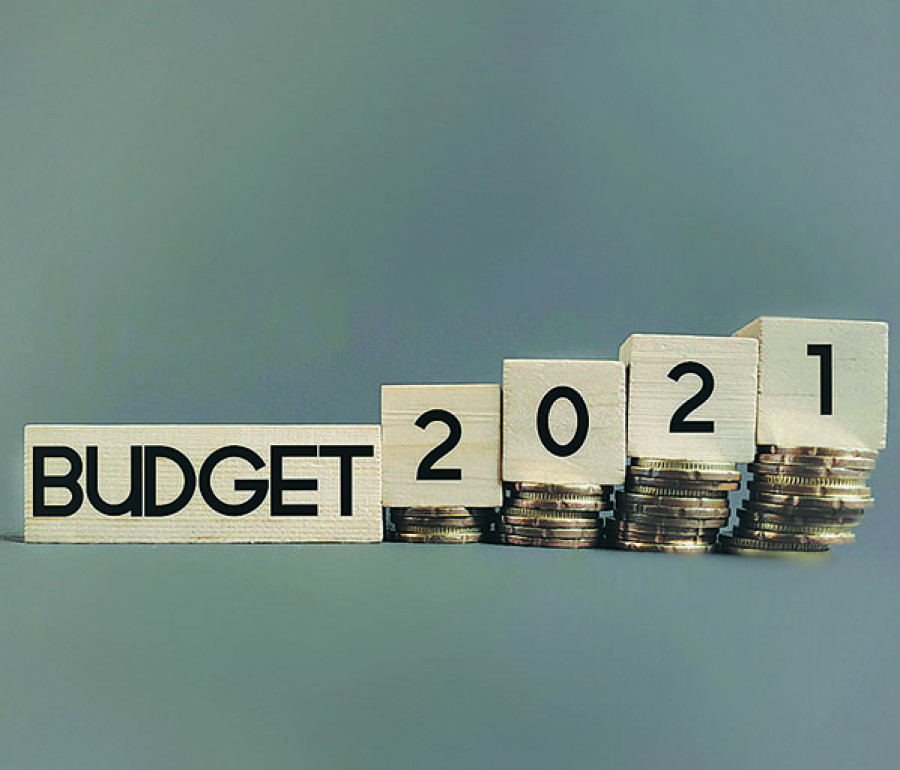National
Provinces no different from federal government when it comes to unproductive spending
Provincial governments often accuse Kathmandu of hindering their progress but they have failed to introduce programmes that actually serve the people, experts say.
Binod Ghimire
On April 30 last year, the Nepali Congress Central Working Committee demanded the government scrap the budgetary programme to allocate millions of rupees in the name of electoral constituency development programme to be spent on projects selected by lawmakers.
Neither the federal nor the provincial government listened to its demands. The party raised the issue at the federal parliament and in different provincial assemblies. Bishwa Prakash Sharma, spokesperson for the party, went on to appeal to the taxpayers to disobey the government’s directive to pay the taxes in protest of the allocation.
The party was in the opposition at the centre and also in provincial assemblies. However, now it leads the provincial government in Gandaki and is a coalition partner in Province 2 and Karnali Province. All the provincial governments, including the three that presented their annual budgets on Tuesday, have given continuity to the programme. It is only the federal government that scrapped the programme for the upcoming fiscal year following widespread criticism.
The Congress-led Gandaki provincial government has allocated Rs720 million for the programme this year. “We are leading a coalition government so we had to continue the programme despite our party standing against it,” Kumar Khadka, a minister and spokesperson for the provincial government, told the Post. “We wouldn't have continued it had we formed a majority government.”
Though the federal government led by CPN-UML has scrapped the programme, the Bagmati provincial government led party is ahead of all others in allocating the highest budget to be spent in electoral constituencies. It has allocated Rs 2.42 billion for the programme.
The Province 2 government, which often challenges the federal government and charges it with creating hurdles in its performance, has allocated Rs2.35 billion for the programme, which is around seven percent of the entire budget. Experts on governance say the provincial government isn't different from the federal government in allocating the budget in unwanted sectors.
Khem Raj Nepal, former secretary at the local development who writes on the issue of decentralisation, said the provincial governments have failed to give a hope to the public that they would perform differently.
“Over the years, it has been proved that the provinces themselves are more responsible for their non-performance than the centralised mindset of the federal government,” he told the Post. “They are competing with the federal government in continuing the malpractices.”
He says the recurrent expenditure of the provincial governments is higher than the development budget. In their budget for the fiscal year 2021/22, the development budget of the provinces is slightly higher than the recurrent.
However, similar to that of the central government, the development budget remains unspent, leading to the situation where recurrent expenditure is higher than the development spending. Provincial governments too are focused on pleasing the people from the different constituencies through populist programmes rather than focusing on productive sectors, experts say.
The UML-led government in Province 1, for instance, has allocated Rs10 million to construct leader’s park (Rajneta Park). It also has allocated Rs30 million to be distributed to the foundations created in the names of late political leaders such as Girija Prasad Koirala, Mandan Bhandari, Manmohan Adhikari, Krishna Prasad Bhattarai, Ram Prasad Rai and Surya Bahadur Thapa.
Experts say if the provincial governments were concerned about serving their people, they would at least have prepared a few exemplary schools or hospitals that are directly linked with the day-to-day lives of the general public.
“It’s been three years since the provincial governments came into existence,” Khim Lal Devkota, a national assembly member who holds a PhD on development economics and writes extensively on federalism, said. “They should give some hope to the people through their programme and works.”




 14.12°C Kathmandu
14.12°C Kathmandu














